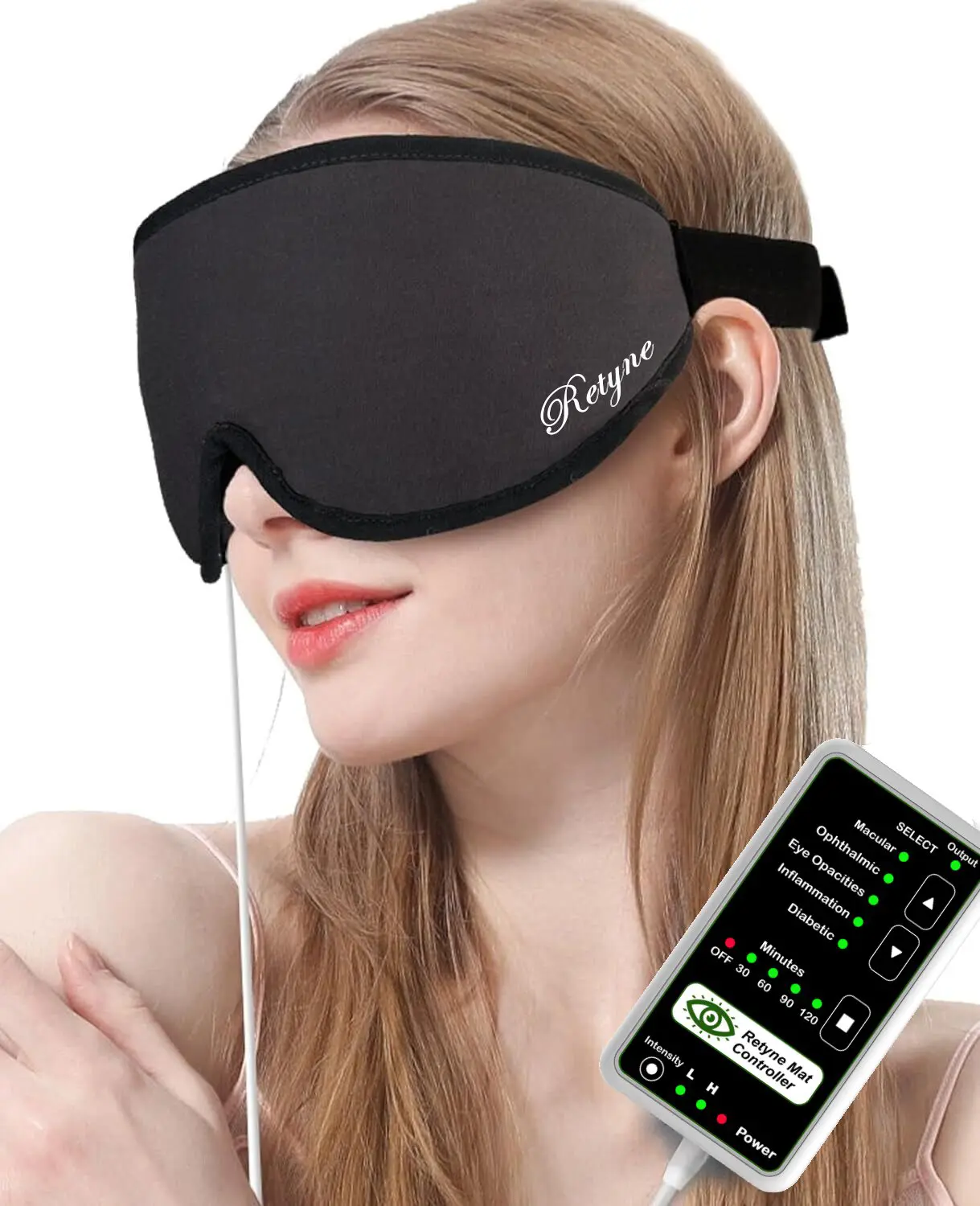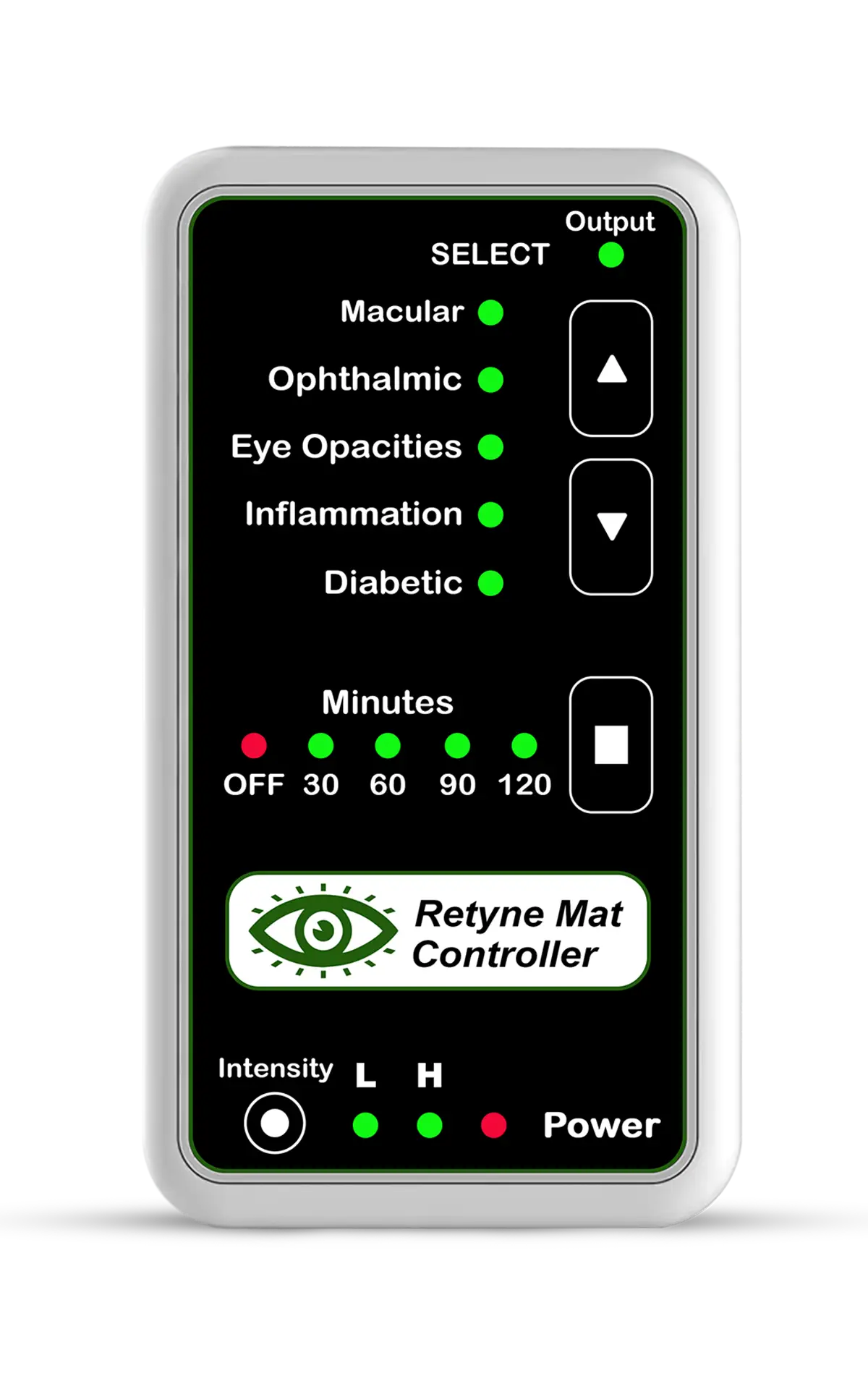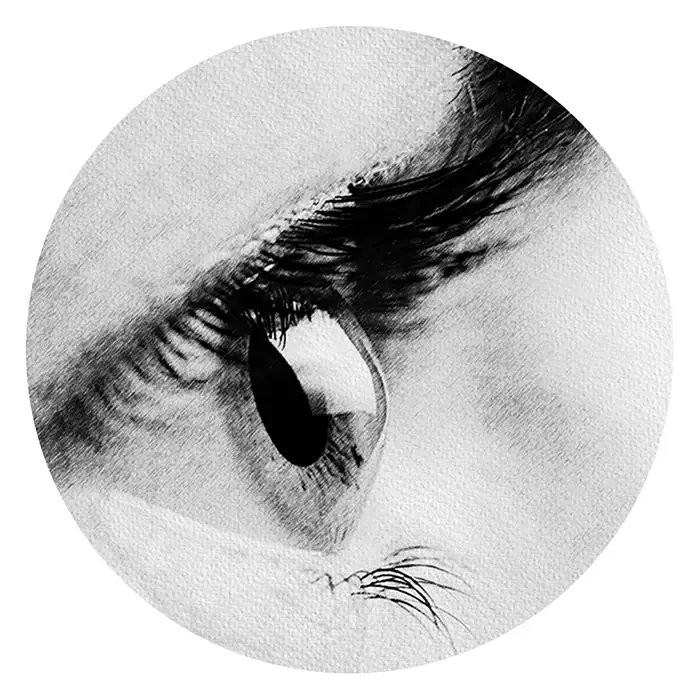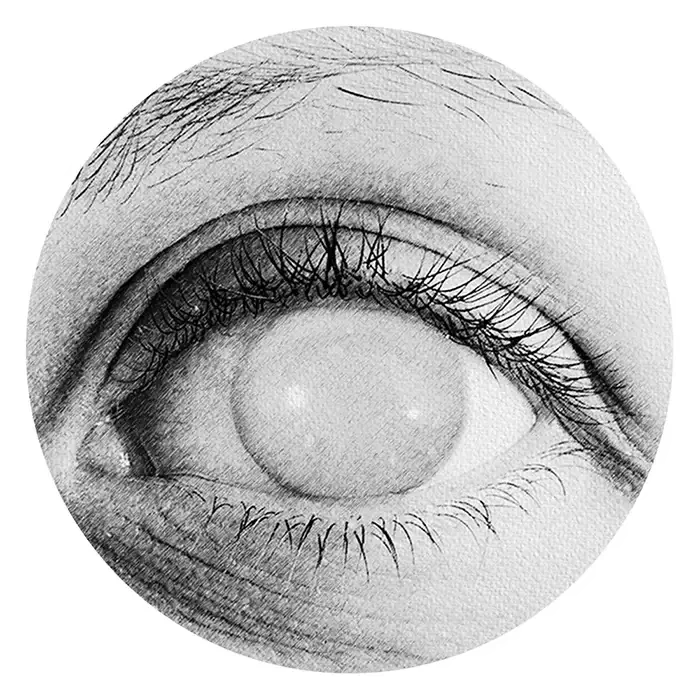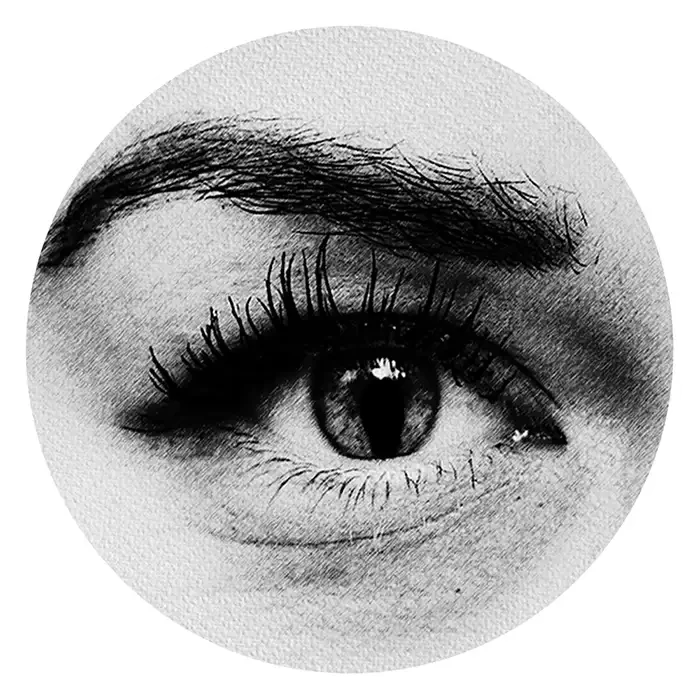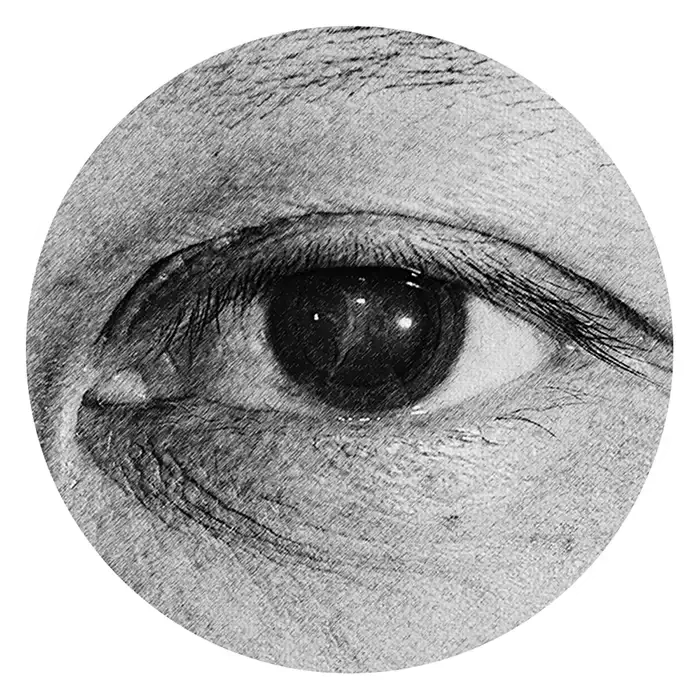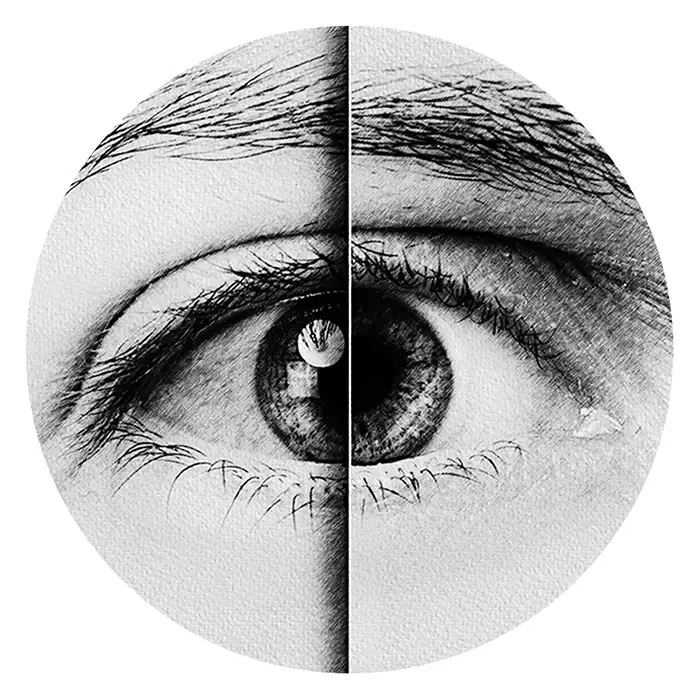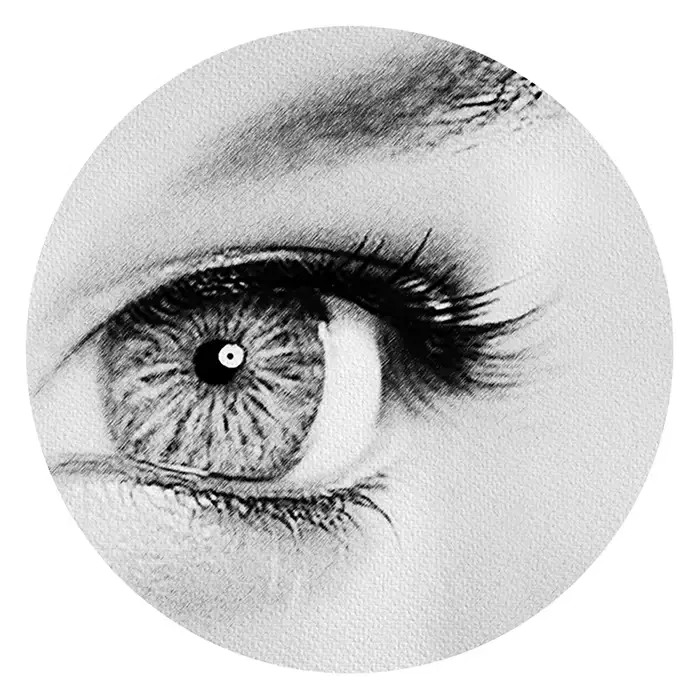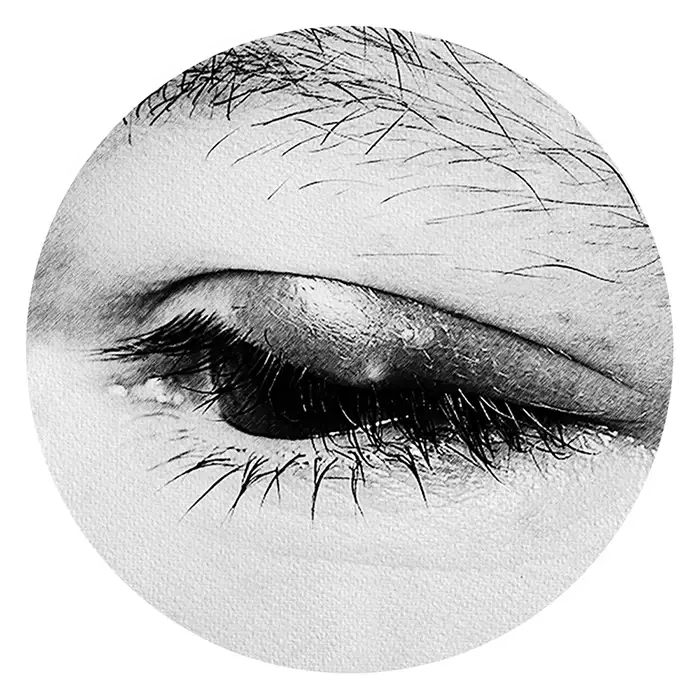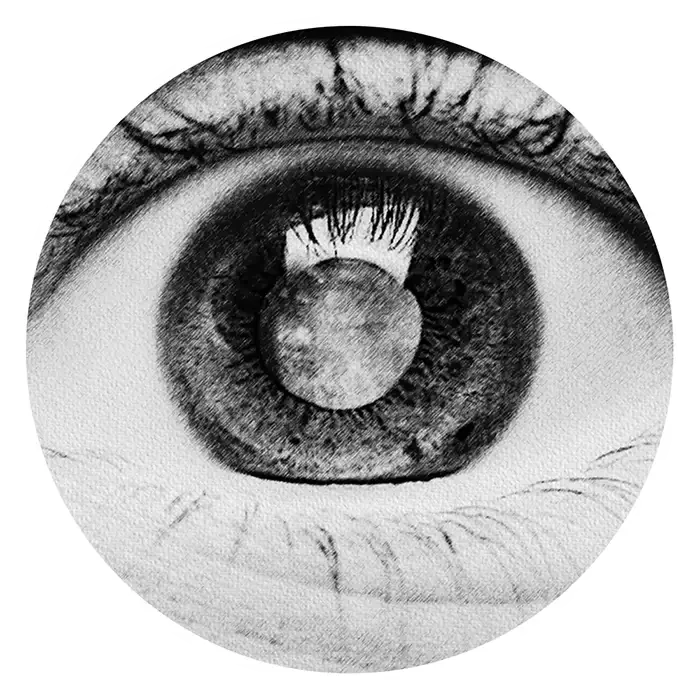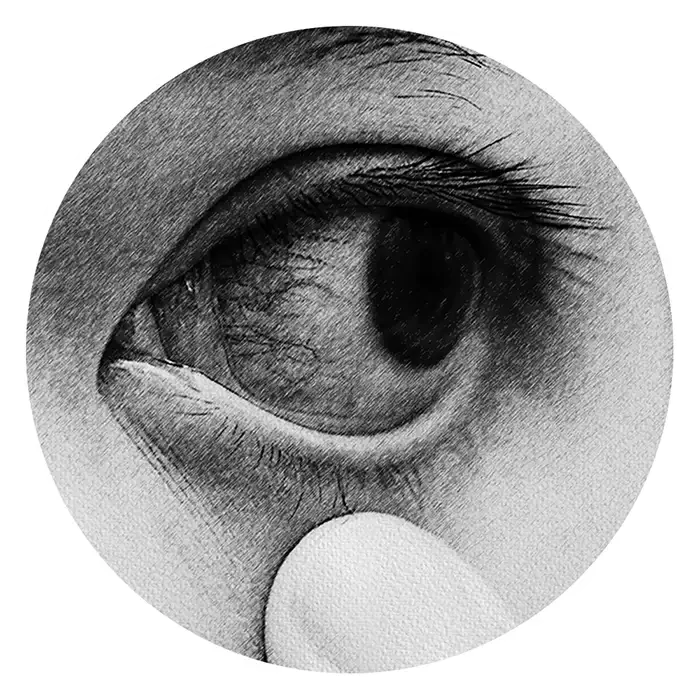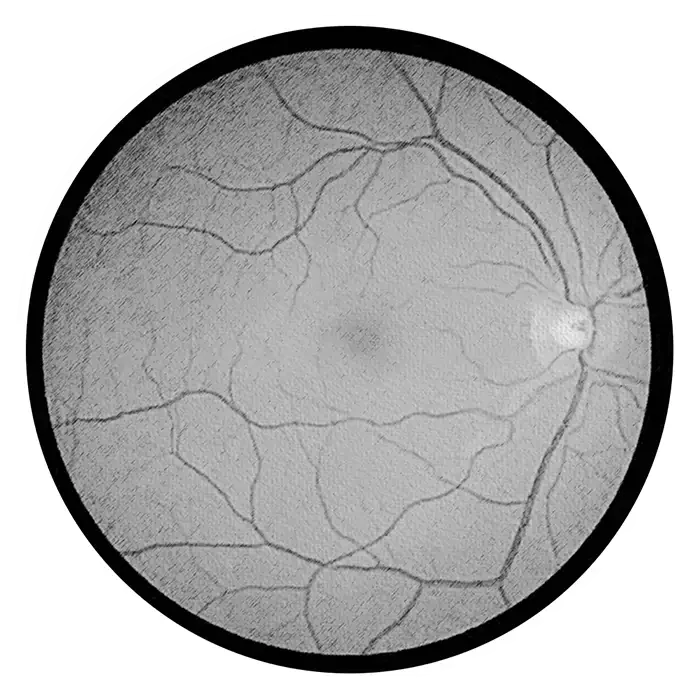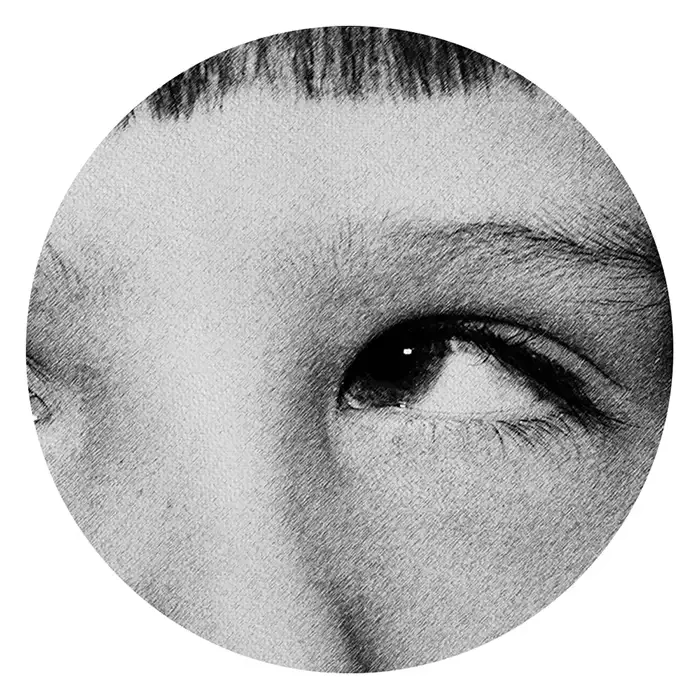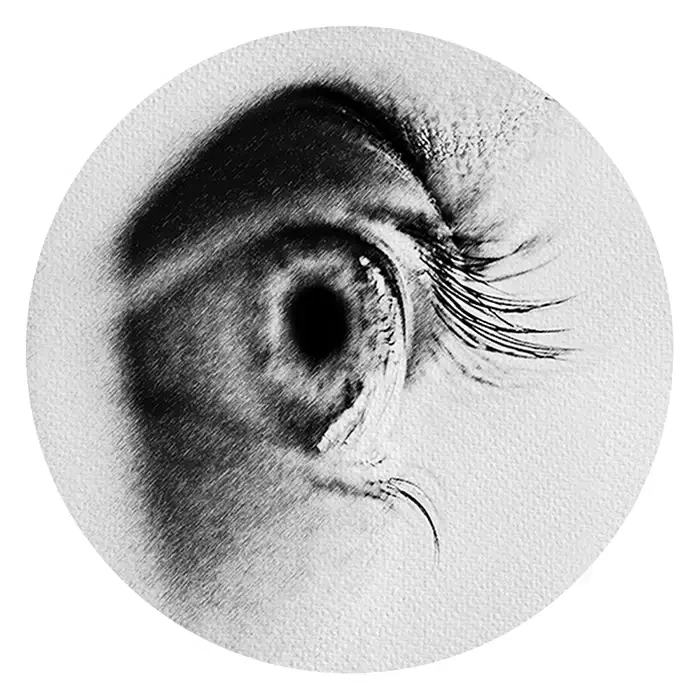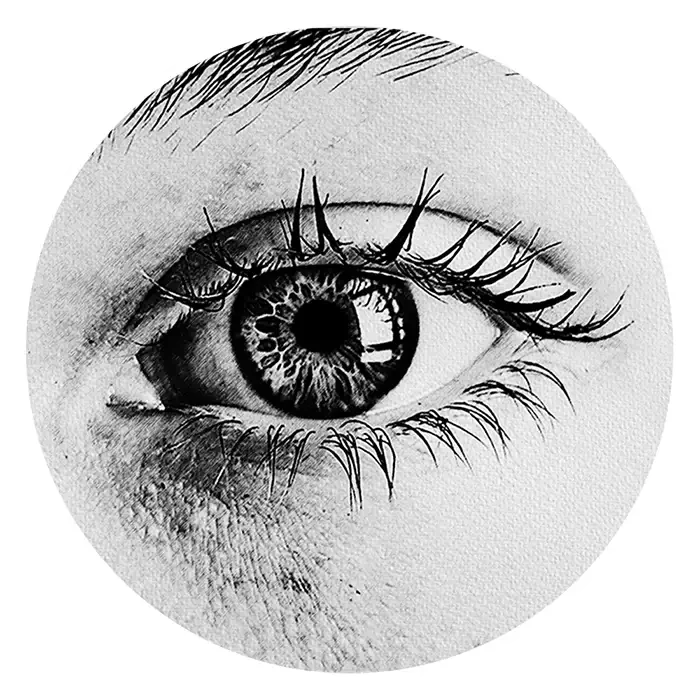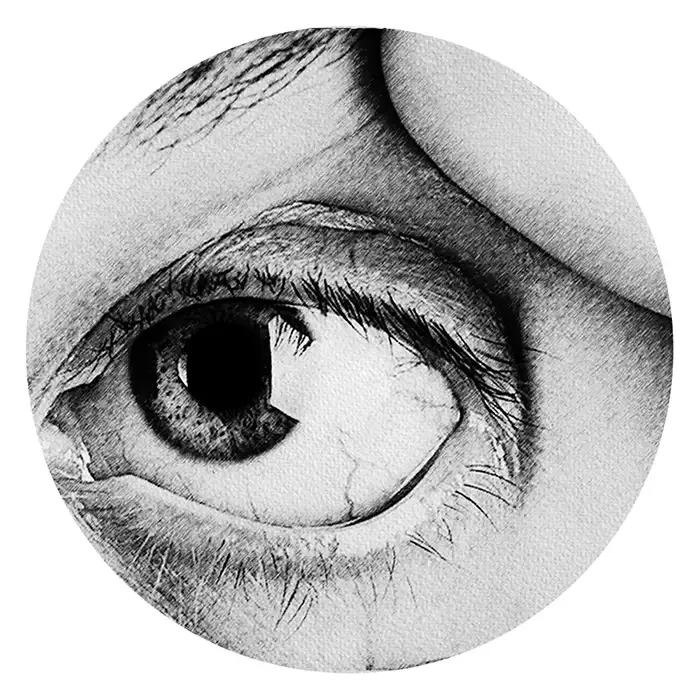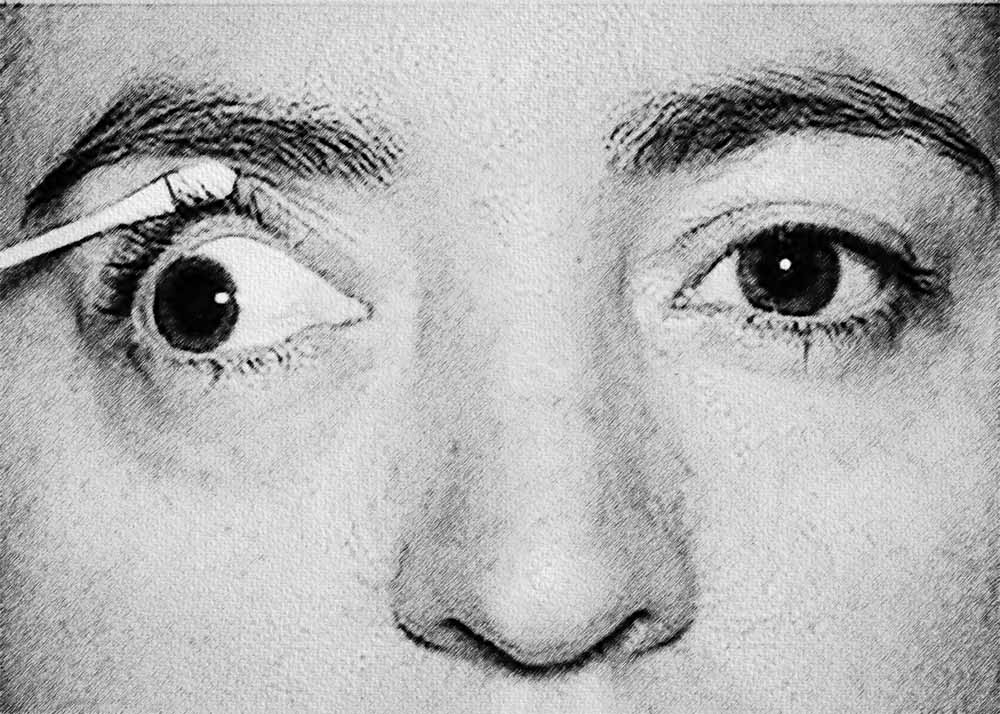
Treatment of Oculomotor Nerve Palsy with Invisible Infrared Technology
Oculomotor nerve palsy, also known as third nerve palsy, is a neurological condition characterized by dysfunction of the oculomotor nerve, which controls the movement of several eye muscles. This condition can lead to various symptoms, including double vision, drooping eyelid (ptosis), and difficulty moving the affected eye(s). Oculomotor nerve palsy can manifest in different forms, such as complete or partial paralysis of the oculomotor nerve, each with its own clinical implications.
Diagnosis and Classification
Diagnosing oculomotor nerve palsy involves a thorough eye examination and neurological assessment by a qualified healthcare professional. Imaging studies such as magnetic resonance imaging (MRI) or computed tomography (CT) scans may be conducted to identify the underlying cause of the nerve dysfunction. Classification of oculomotor nerve palsy is based on factors such as the extent of nerve involvement, presence of associated symptoms, and underlying etiology.
Oculomotor Nerve Palsy and Neurological Eye Disorders
Oculomotor nerve palsy is classified as a neurological eye disorder because it involves dysfunction of the oculomotor nerve, which is a critical component of the nervous system responsible for controlling eye movements. The condition disrupts the normal coordination of eye movements, leading to symptoms such as strabismus (misalignment of the eyes) and diplopia (double vision). Oculomotor nerve palsy can result from various neurological conditions, including trauma, vascular disorders, and tumors.
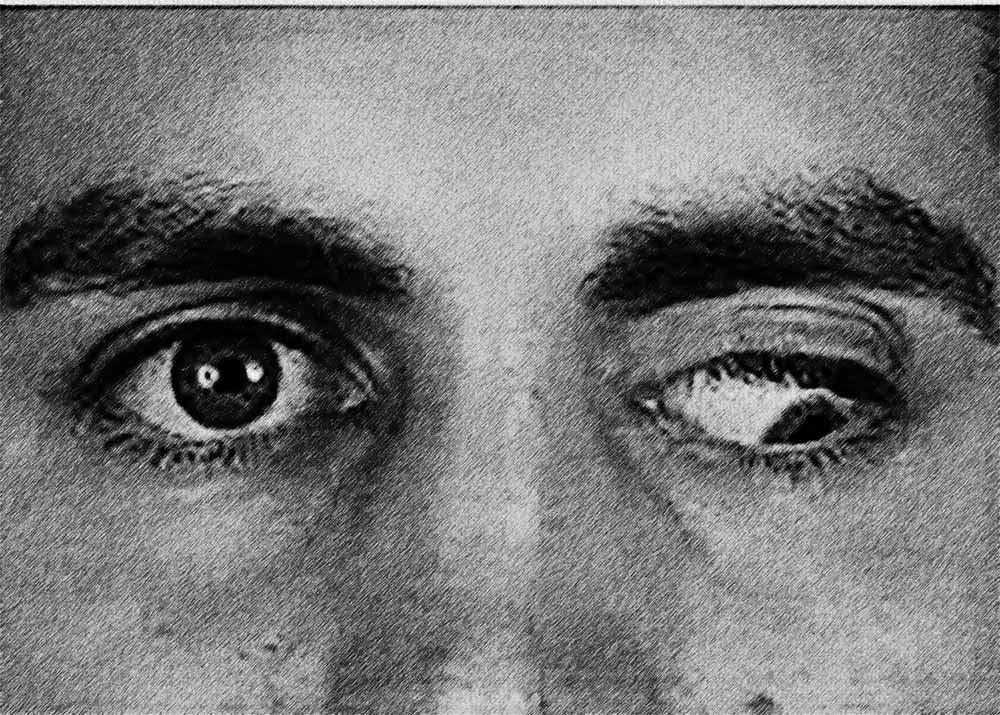
Treatment with the Retyne Infrared Eye Treatment Mask
The Retyne Infrared Eye Treatment Mask offers a promising therapeutic approach for managing the symptoms of oculomotor nerve palsy. Program #4 on the Retyne controller is specifically designed to target neurological eye disorders like oculomotor nerve palsy. By delivering focused invisible infrared light therapy to the affected eye(s), the Retyne mask aims to modulate neural activity and promote recovery of oculomotor nerve function.
Efficacy and Benefits
Infrared light therapy has shown efficacy in promoting neuroplasticity and enhancing nerve regeneration in various neurological conditions. By utilizing invisible infrared light therapy, the Retyne mask may help improve muscle function and coordination in the affected eye(s) of individuals with oculomotor nerve palsy. Additionally, infrared light therapy is non-invasive and well-tolerated, making it a safe adjunctive treatment option for oculomotor nerve palsy.
Oculomotor nerve palsy can significantly impair visual function and quality of life for affected individuals. However, with innovative treatment modalities like the Retyne Infrared Eye Treatment Mask, there is hope for improving outcomes and promoting recovery. By targeting the underlying neurological dysfunction with invisible infrared light therapy, the Retyne mask offers a non-invasive and potentially effective approach to managing the symptoms of oculomotor nerve palsy and restoring normal eye movement function.
The Retyne eye treatment mask utilizes a specific array of frequencies (0.06, 0.5, 0.87, 12.85, 27.5, 141, 301.23, 453.02, 783.4, 825.03) precisely tailored to target symptoms of Oculomotor Nerve Palsy. Each frequency is chosen based on documented effectiveness in managing this condition. Retyne's innovative approach converts these frequencies into invisible infrared light output, pioneering a fusion of frequencies with light. This transformative technology is a hallmark of Retyne Labs. Furthermore, the Retyne mask administers focused invisible infrared light directly onto the eyes, intensifying its therapeutic effects for CVI treatment.
Moreover, for those utilizing advanced hardware such as the RDPV4, a secondary set of specific frequencies for Oculomotor Paralysis [O. Nerve Palsy]: 0.17, 0.32, 0.95, 5.5, 32.5, 330, 537.5, 605.83, 754.03, 825.31 are available. The RDPv4 offers an expanded range of frequencies, finely calibrated to provide even greater precision in addressing this eye disorder. By incorporating this secondary set of frequencies, the RDPV4 elevates the potential therapeutic benefits of the Retyne eye Treatment Mask, catering to individuals seeking advanced solutions for their visual health needs.
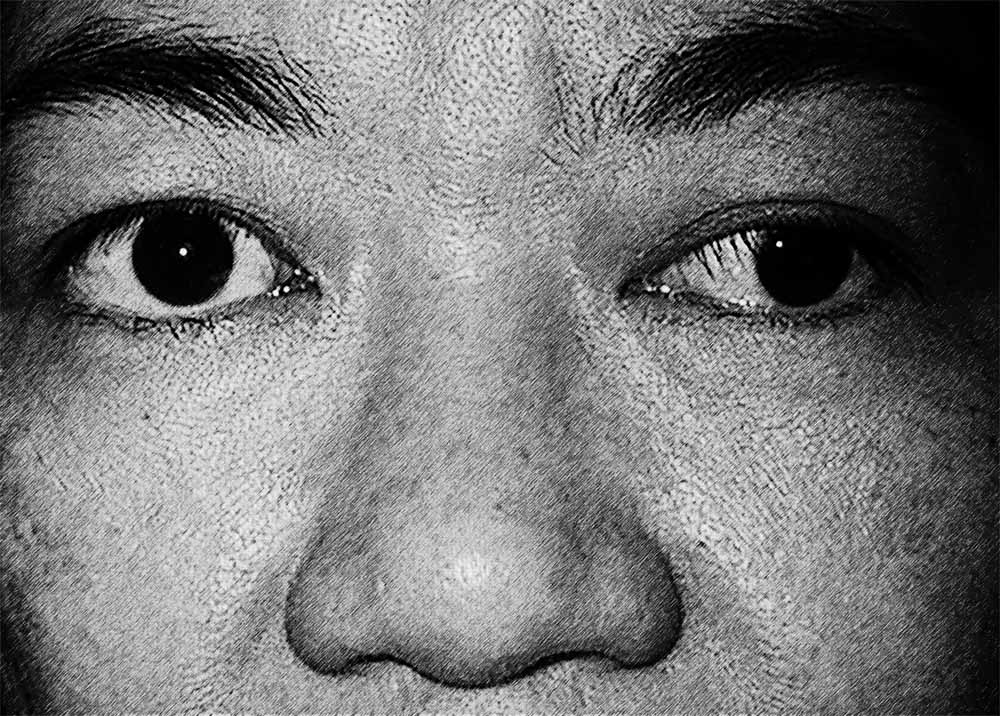
Drawing inspiration from the pioneering research of Dr. Rife, who unearthed the therapeutic potential of precise frequencies and harnessed light for their propagation, Retyne's methodology embraces contemporary insights into invisible infrared technology. By leveraging current advancements and building upon historical investigations into frequency-based light transmission, Retyne has developed the innovative Retyne Eye Treatment Mask. This cutting-edge device represents the synthesis of modern breakthroughs in visual healthcare, offering a comprehensive solution rooted in both tradition and progress.
Oculomotor Nerve Palsy General set : 0.06, 0.5, 0.87, 12.85, 27.5, 141, 301.23, 453.02, 783.4, 825.03
Oculomotor Nerve Palsy utilizes group 1233 on the International ETDFL frequency list
On RDPV4 use specific set 2384: Oculomotor Paralysis [O. Nerve Palsy]: 0.17, 0.32, 0.95, 5.5, 32.5, 330, 537.5, 605.83, 754.03, 825.31
Compatibility
Standalone controller (Program #4) (Controller shipped with Retyne Eye Treatment Mask)
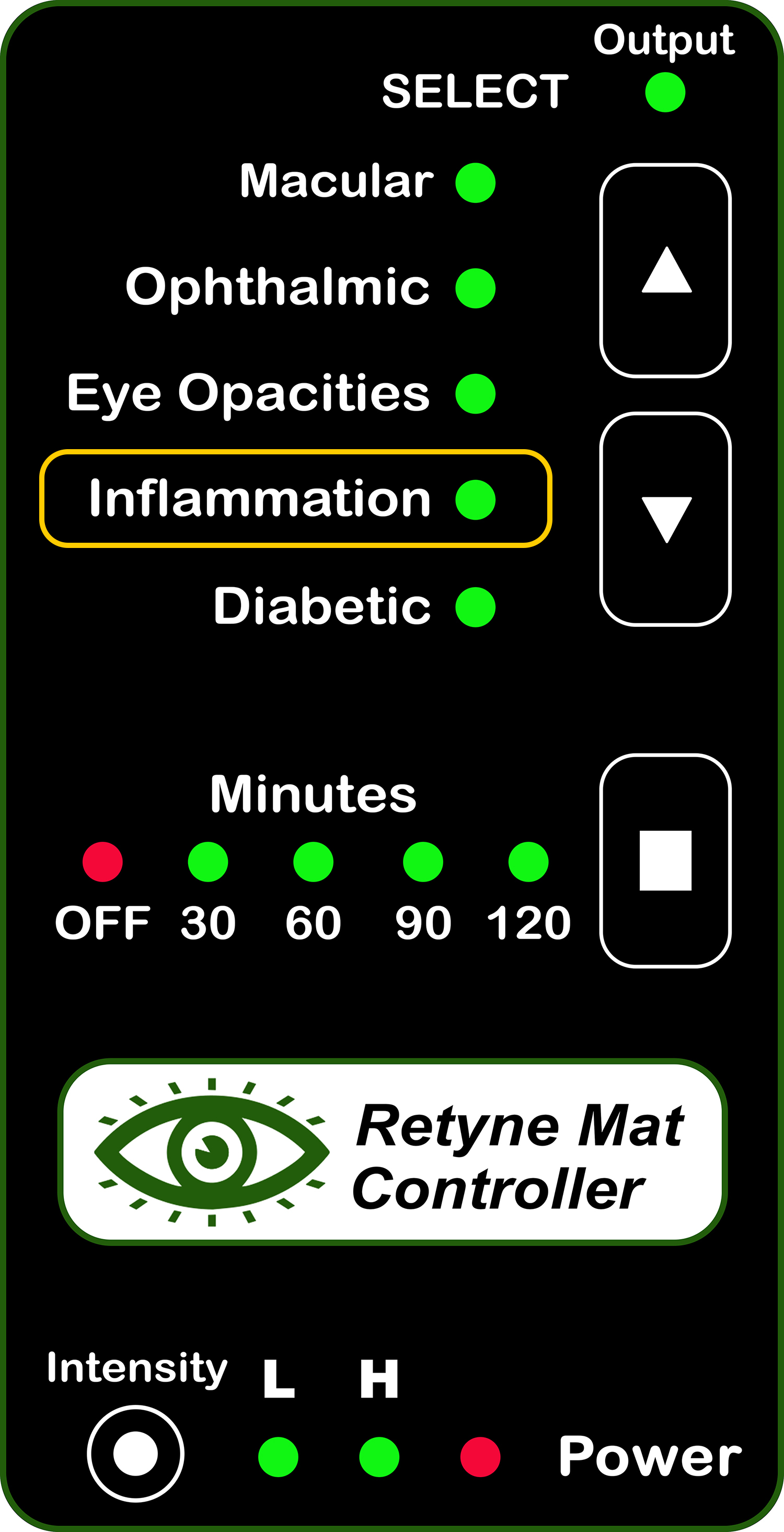
RDPV4 (Direct connect, use group 2384)
RDPV4 Light Mask Program button 4
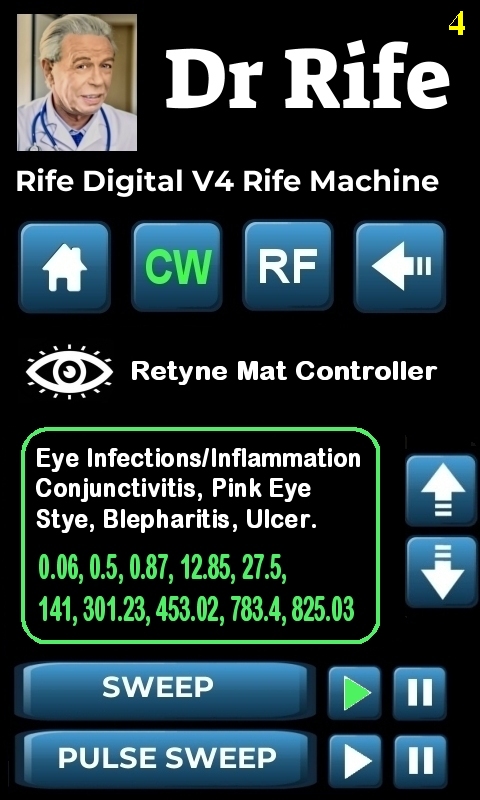
Click here for instructions on using the Retyne Mask + Controller
